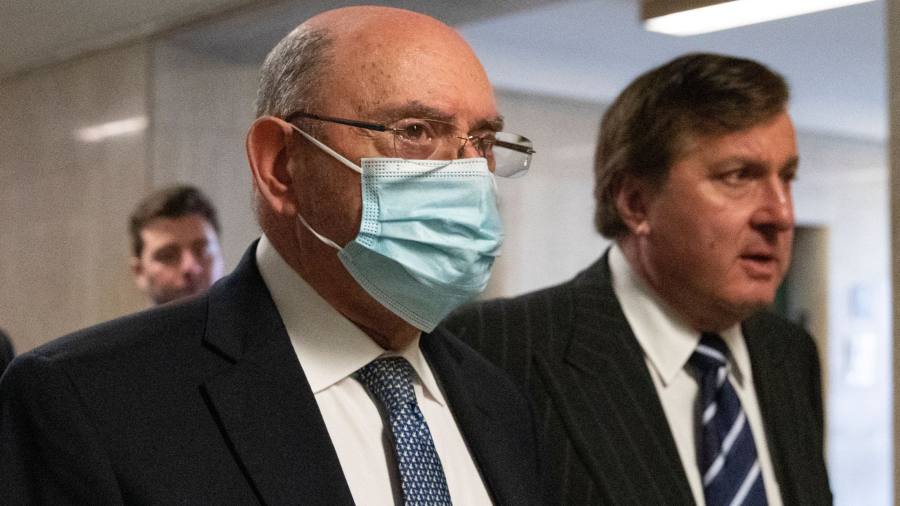
Donald Trump’s longstanding finance chief told a Manhattan court he acted out of his “own personal greed” when engaging in tax fraud, as prosecutors provided evidence of payments to executives at the former US president’s business empire that they allege were kept “off the books”.
Allen Weisselberg, who pleaded guilty to 15 charges in August, fought back tears as he testified on Thursday that no member of the Trump family was aware of how he avoided paying certain taxes by accepting a luxurious waterfront apartment, Mercedes cars and tuition for his grandchildren from the Trump Organization without properly declaring them as income.
Under cross-examination from Trump Organization lawyer Alan Futerfas, the 75-year-old confirmed he believed the Trump family “relied on him to do the right thing”, and agreed that he had betrayed their trust. Weisselberg had previously testified that Trump himself signed many of the cheques for the qualified accountant and his wife’s undeclared perks.
An employee for almost 50 years who rose to become one of Trump’s closest advisers, Weisselberg is the star witness in a criminal case brought against the former president’s business entities by the Manhattan district attorney.
As part of a plea deal with prosecutors, Weisselberg, who is still being paid more than $600,000 a year by Trump entities, agreed to testify truthfully in the DA’s case against the Trump Organization, or face a maximum sentence of 15 years in jail.
Lawyers for the company are seeking to establish that his illegal behaviour over a 15-year period was not authorised by Trump and his family.
During questioning by prosecutor Susan Hoffinger, Weisselberg had outlined how it was “convenient for the company” that he and other senior Trump Organization employees received benefits and bonuses that were not declared as part of their regular salary.
Prosecutors on Tuesday produced a lease for Weisselberg’s Upper West Side apartment signed by Trump. The former chief financial officer also testified that Trump had personally authorised payments amounting to $100,000 a year for the private schooling of his two grandchildren, although Weisselberg insisted he planned on paying the sum back.
Trump stopped signing such cheques once he became president in 2017, Weisselberg said. The company also started to declare executives’ perks as part of their pay when Trump entered the White House, he said, because management was mindful of the fact that they had “everybody looking at our company from every different angle”.
“We were going through an entire clean-up process at the company,” Weisselberg testified about the period after Trump’s election, to “make sure we correct everything”. He added: “I started paying my rent directly, I paid my tuition directly.”
If convicted, the Trump Organization could be fined a maximum of about $1mn, a far smaller sum than the $250mn that the company could be forced to pay if it loses a related civil case brought by the New York attorney-general Letitia James.
A guilty verdict in the Manhattan DA’s case could hamper the company’s ability to get loans and make deals, and provide ammunition for Trump’s political rivals as he vies to become the Republican nominee for president for a third time.